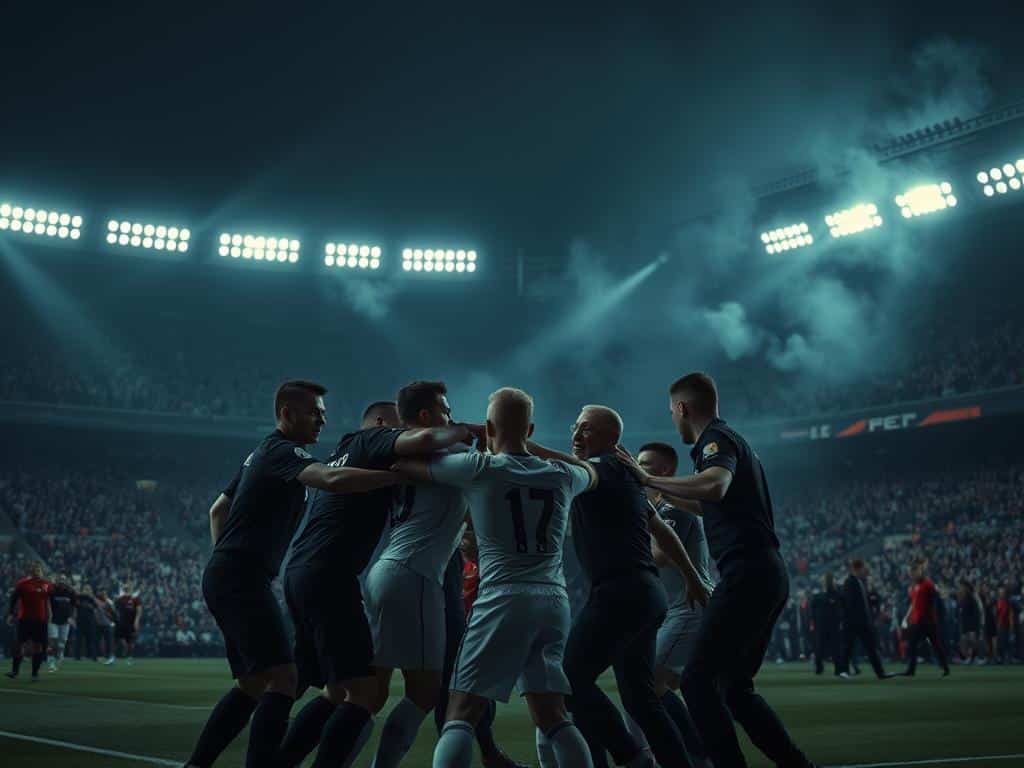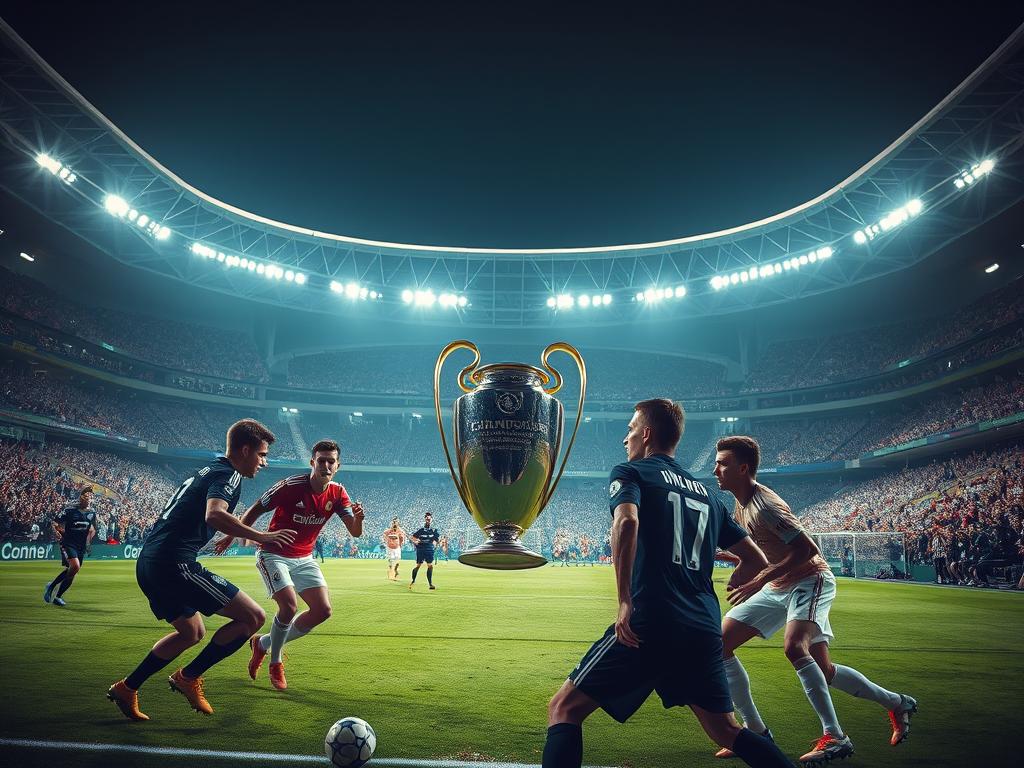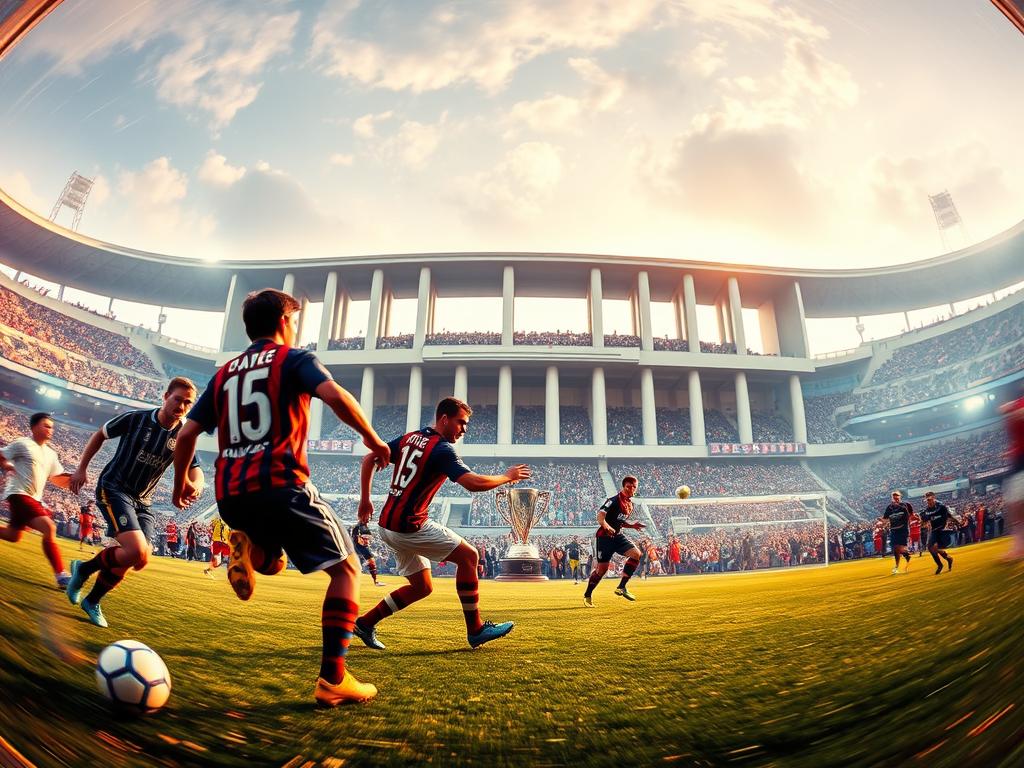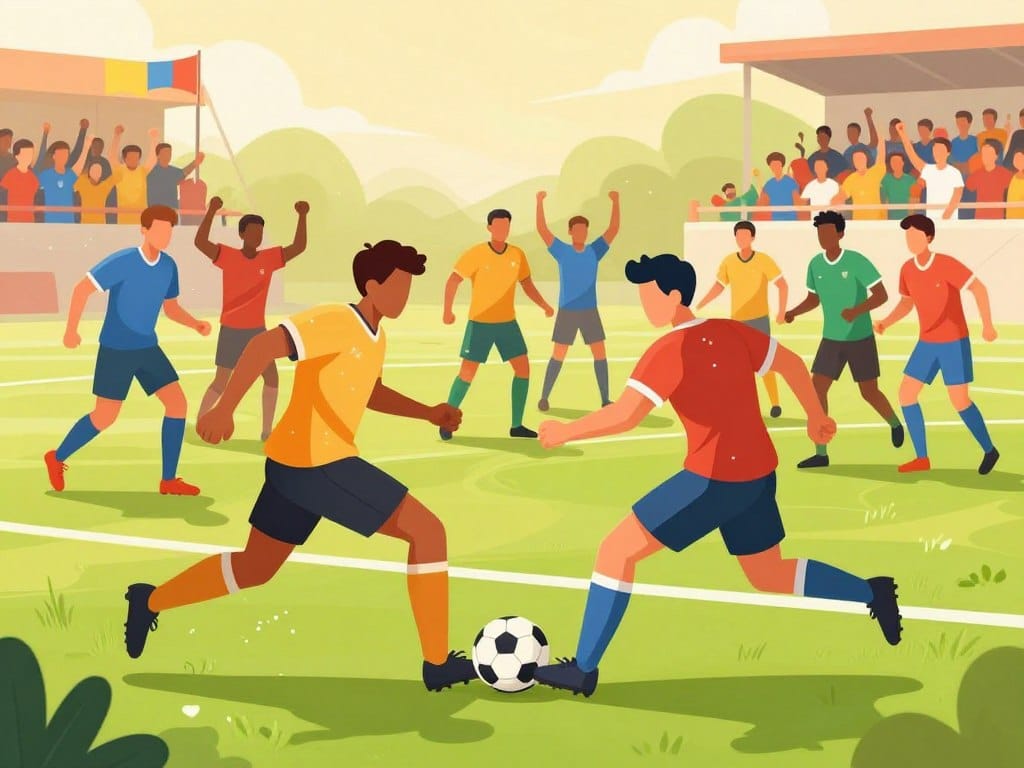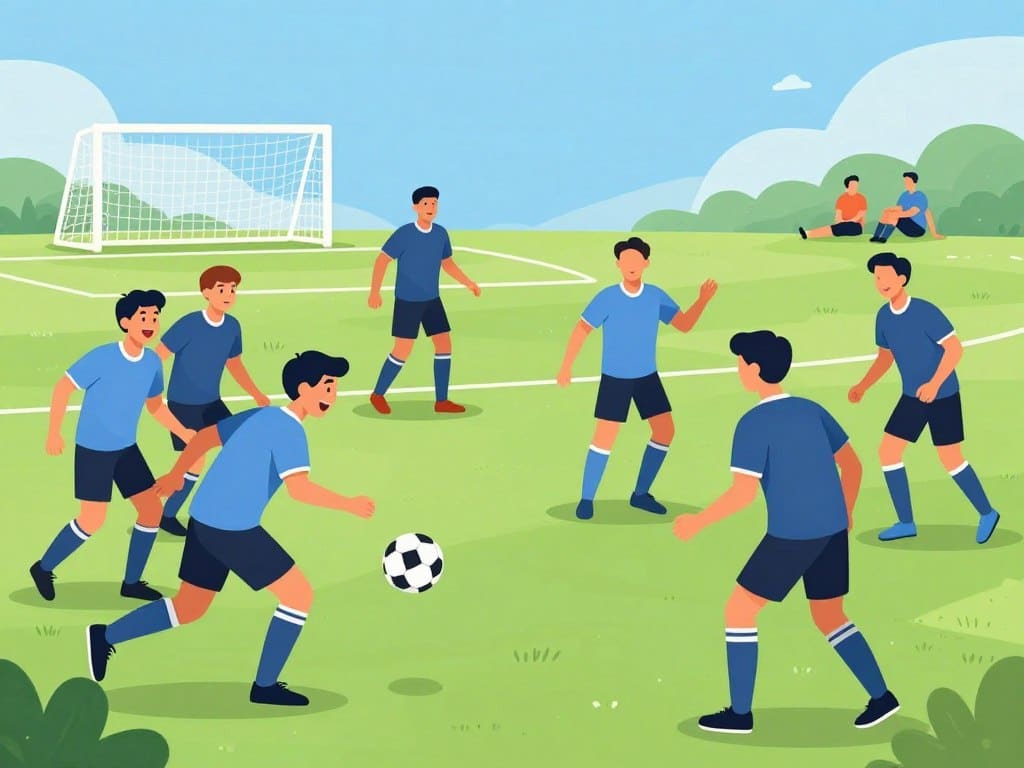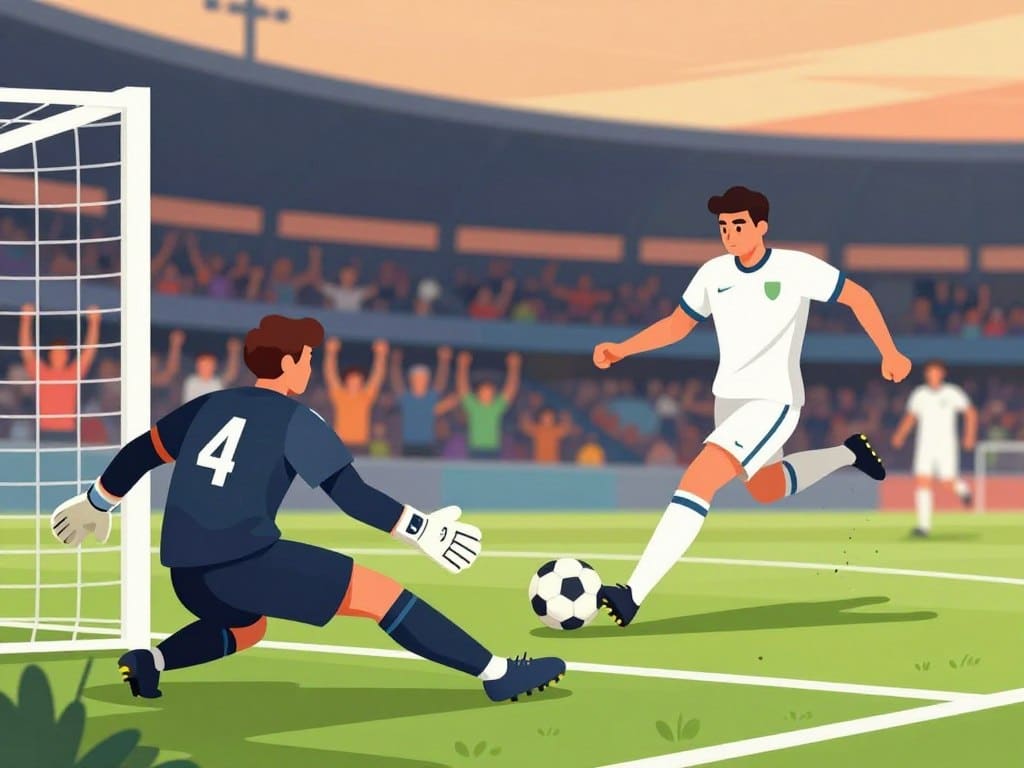The football World Cup isn’t just a sporting event—it’s a drama-filled spectacle where passion and pressure collide. From disputed goals to heated debates, this tournament has seen it all. Let’s kick off with Qatar 2022, where fresh allegations about host selection integrity made headlines years later.
Why do these world cup controversies stick? High stakes, global scrutiny, and raw emotion turn every match into history. Whether it’s tragic fouls or VAR rulings, the fallout reshapes football culture. Ready to relive 10 infamous moments? Grab your jersey—we’re diving in.
Introduction: The Dark Side of the Beautiful Game
Few sporting events unite the globe like the World Cup, yet its history hides fiery disputes. For every moment of unity, there’s a scandal that leaves fans gasping. Let’s uncover the shadows behind the shine.
The first controversy struck in 1930. Argentina faced France, but the referee blew the whistle six minutes early! Confused players protested, but the result stood. Even then, the game proved drama was part of its DNA.
As the tournament grew, so did the stakes. From Suárez’s handball in 2010 to VAR debates today, each era adds its own twist. These moments aren’t just blunders—they’re cultural milestones.
Why do they matter? They reveal football’s raw emotion. A single call can define legacies, divide nations, and spark debates for decades. Ready to relive the chaos? Buckle up.
The Murder of Andres Escobar (1994)
Imagine scoring an own goal—then paying for it with your life. That’s the chilling reality for Andres Escobar, whose 1994 mistake spiraled into tragedy. Colombia’s star-studded group had high hopes, but one moment changed everything.
A Tragic Own Goal
Escobar’s deflection against the USA sealed Colombia’s exit. The defender’s face said it all: shock, then dread. Back home, the media amplified the blame, ignoring his career of brilliance.
Colombia’s underworld had deep ties to the national team. Drug cartels bet millions on matches, and losses meant consequences. The goal wasn’t just a mistake—it was a debt.
The Aftermath and Legacy
Ten days later, Escobar was shot at El Indio nightclub. The killer reportedly shouted “¡Gol!” with each bullet. Football historian Tillard calls it “the most harrowing tale in football history.”
Today, clubs honor Escobar in the 34th minute (his jersey number). The tragedy forced Colombia to overhaul players’ security. Modern safeguards, like private escorts, trace back to this wake-up call.
The Bogotá Bracelet Scandal (1970)
England’s captain found himself in handcuffs days before the biggest event in football. Bobby Moore, a national hero, was accused of stealing a £600 bracelet in Bogotá. The incident spiraled into a Cold War-era diplomatic crisis.
Bobby Moore’s House Arrest
Moore’s ordeal began at the Green Fire jewelry store. Colombian police claimed he pocketed an emerald bracelet during a team visit. Despite protests, he spent four days under house arrest in a cramped hotel room.
In his autobiography, Moore called it a “surreal nightmare.” The FA scrambled, even threatening to pull England from the tournament. Meanwhile, the team trained under a cloud of uncertainty.
International Tensions
The UK government intervened, citing “fabricated charges.” Colombia, amid political unrest, refused to back down. Moore’s release came only after intense behind-the-scenes negotiations.
The case lingered until 1972, when Colombia quietly closed it. Modern stars like Beckham faced similar scrutiny, but none endured Moore’s legal limbo. The scandal remains a stark reminder of football’s intersection with global politics.
Maradona’s “Hand of God” (1986)
Few moments in football history blur the line between genius and cheating like Maradona’s 1986 strike. In a match dripping with political tension, Argentina faced England in the football world cup quarterfinals. What followed wasn’t just a goal—it was a myth in the making.
The Infamous Goal
Picture this: 114,000 fans screaming, a referee blinded by chaos. Maradona leapt over goalkeeper Peter Shilton, punching the ball into the net. Referee Ali Bin Nasser missed it—his sightline blocked by three players.
Three minutes later, Maradona scored the “Goal of the Century,” dribbling past five defenders. The duality defined his legacy: villain and virtuoso in one match.
England’s Outrage
British headlines erupted: “Cheat of the Century!” Fans still ask, “Where were you when Maradona robbed England?” The fury wasn’t just about football. The Falklands War (1982) cast a shadow—Argentina’s victory felt like national payback.
- Media: The Sun called it “a mugging in broad daylight.”
- Players: Shilton demanded VAR—nonexistent in 1986.
- Legacy: Compared to Hurst’s 1966 “phantom goal,” but with far higher stakes.
Maradona’s Justification
Maradona later smirked: “It was a little with the head of Maradona, a little with the hand of god.” Argentina celebrated; England seethed. Today, VAR would’ve disallowed it instantly—just like Suárez’s 2010 handball.
The moment endures because it’s raw football: cunning, controversy, and the thin line between glory and disgrace.
Maradona’s Drug Test Failure (1994)
FIFA’s drug testers walked into Argentina’s locker room, and football history changed forever. After a fiery 2-1 win over Greece, Maradona’s wild-eyed celebration masked a grim truth. The test revealed ephedrine—a stimulant banned by FIFA.
The Ephedrine Scandal
Ephedrine boosts alertness but risks heart strain. Maradona claimed it was in an energy drink, but FIFA’s rules left no wiggle room. His exit was swift. Tillard called it a “sensational removal from the tournament’s brightest stages.”
Conspiracy theories swirled. Some blamed rivals; others pointed to Maradona’s erratic weight shifts. Teammates stood stunned. “We lost our leader,” said one of Argentina’s players. The squad crashed out in the next round.
End of an Era
Maradona never played for Argentina again. His health spiraled, linking back to 1994’s physical toll. Modern doping cases, like Russia’s 2018 ban, echo this scandal’s shadow.
For fans, it was a tragic finale. The man who ruled 1986 fell not to defenders—but to a tiny vial.
The French Team Mutiny (2010)
A locker room insult sparked one of football’s most shocking team rebellions. France’s 2010 world cup campaign collapsed after Nicolas Anelka clashed with coach Raymond Domenech. What followed was chaos—on and off the pitch.
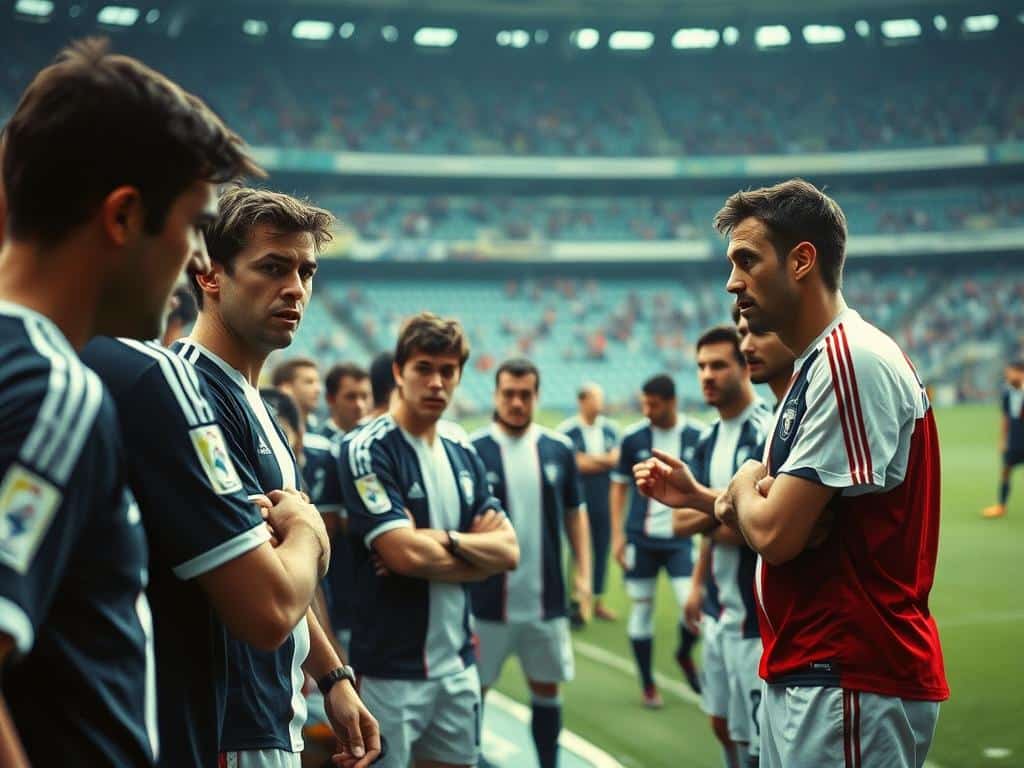
Anelka’s Dismissal
Anelka’s profanity-laced rant at Domenech leaked to the press. The striker called his tactics “a joke” after a match against Mexico. The French FA sent him home immediately, but the team took his side.
Captain Patrice Evra led a training boycott. Players locked themselves on the team bus, refusing to speak to staff. Domenech later admitted, “I lost control—they saw me as the enemy.”
Training Boycott
France’s final group stage game was a farce. The squad barely trained, finishing last with just one point. Fans booed them; pundits called it “the death of French football.”
- Fallout: The French FA disbanded the coaching staff and suspended Evra for five games.
- Reforms: New rules barred players from challenging coaches publicly.
- Legacy: Samir Nasri’s exile from the national team traced back to this mutiny.
Today, the revolt symbolizes player power gone wrong. Modern squads balance respect with accountability—thanks to France’s 2010 disaster.
The Mystery of Ronaldo’s Fitness (1998)
Hours before the biggest match of his career, Ronaldo collapsed in his hotel room—what happened next remains football’s darkest mystery. Brazil’s star striker convulsed violently, forcing doctors to scramble. Tillard’s “hospital rush” account describes IV drips and whispered arguments. Yet, 72 minutes before kickoff, Ronaldo was reinstated. Brazil lost 3-0, and the questions never faded.
Pre-Final Chaos
The timeline still baffles fans. At 2 PM, Ronaldo’s name vanished from the lineup. By 4 PM, teammates saw him “pale and shaking.” Nike, then paying Luiz Nazario de Lima $1 million annually, allegedly pressured Brazil’s staff. Medical reports cited “stress-induced seizures,” but no scans were released.
Compare this to Neymar’s 2014 injury: transparent updates, no corporate whispers. Back in 1998, players like Cafu admitted, “We were confused—was he fit or not?” France’s betting markets surged suspiciously pre-match, fueling theories.
Conspiracy Theories
- Nike’s Shadow: Critics claim the brand forced Ronaldo’s return to protect investments.
- Medical Gaps: Why no MRI? Why did team docs disagree with Paris specialists?
- Zidane’s Rise: France’s star scored twice, contrasting Ronaldo’s ghostly presence on the ball.
Today, concussion protocols would’ve benched Ronaldo instantly. Back then, it was a final shrouded in maybes. Tillard’s verdict? “Football’s last great unsolved drama.”
The Disgrace of Gijon (1982)
When Germany and Austria met in 1982, they didn’t just play—they plotted. Their group game became football’s most shameless display of collusion. A 1-0 win for Germany sent both teams through, while Algeria, the real victim, watched in disbelief.
Germany and Austria’s Collusion
Horst Hrubesch scored early for Germany. Then, both teams stopped trying. For 80 minutes, passes rolled sideways. Fans booed; newspapers called it the “Anschluss“—a political jab at their shared history.
The math was simple: a 1-0 result ensured both advanced. Algeria, who’d beaten Germany days earlier, was out. FIFA’s rules had no answer—until now.
Algeria’s Heartbreak
Algerian players stormed FIFA’s offices. “This isn’t sport,” argued their captain. The outcry forced a change: final group games now kick off simultaneously.
Modern echoes exist. In 2004, Sweden and Denmark drew 2-2 to eliminate Italy. But Gijon 1982 remains the ultimate loophole—a stain on the football world.
- Legacy: Algeria still resents Germany; their 2014 match crackled with tension.
- Fan Impact: Trust in fair play eroded. Today’s VAR debates trace back to this farce.
Zidane’s Headbutt (2006)
One headbutt rewrote football history in 2006. The final between France and Italy was tense, but no one expected Zinedine Zidane’s explosive moment. Extra time simmered with rivalry—then came the collision.
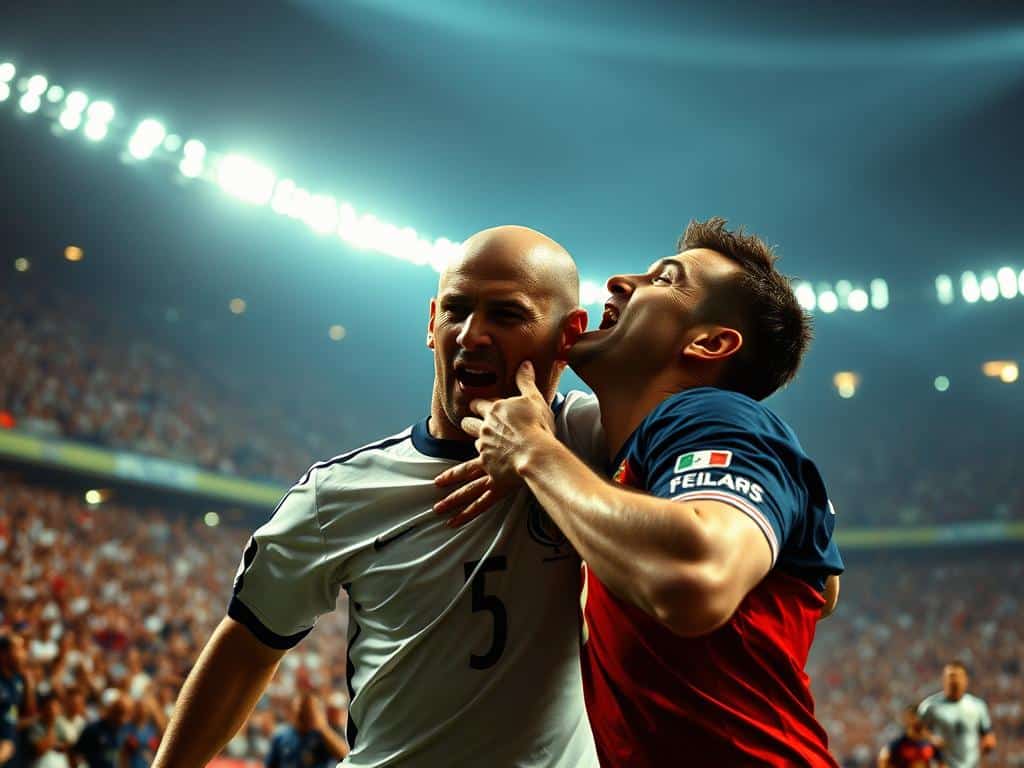
The Final Moment of Madness
Marco Materazzi’s trash talk crossed a line. Witnesses claim he insulted Zidane’s family. The French legend spun around and slammed his head into Materazzi’s chest. Referee Horacio Elizondo flashed a red card instantly.
Zidane walked past the trophy, head down. Fans gasped. Even Italy’s goalkeeper Gianluigi Buffon later admitted, “It felt surreal.” The act mirrored Eric Cantona’s 1995 kung-fu kick—but on the final’s biggest stage.
Italy’s Penalty Victory
France crumbled without their captain. The penalty shootout was brutal: Trezeguet’s miss hit the crossbar. Italy’s Fabio Grosso sealed the win, sparking wild celebrations near Berlin’s memorial sites.
- Legacy: Zidane called it “a mistake, but I’d do it again.” The Louvre later displayed a statue of the moment.
- Contrast: Italy’s joy vs. France’s heartbreak highlighted sports’ emotional extremes.
- Modern Impact: Today, mental health protocols help players manage pressure.
That headbutt wasn’t just a foul—it was football’s rawest human drama.
VAR and Modern World Cup Controversies
Technology changed football forever in 2022—but not without drama. The introduction of VAR and semi-automated offside systems promised fairness. Yet, 27 interventions later, fans debated whether the technology helped or hurt the beautiful game.
The 2022 VAR Debacles
Japan’s “millimeter goal” against Spain split opinions. The ball appeared out, but VAR’s 3D line said otherwise. Critics called it robotic; supporters praised precision. Tillard noted, “It’s progress—but at what cost to spontaneity?”
Then came Griezmann’s disallowed strike. France celebrated, only for VAR to rule it out after the restart. The decision baffled players and viewers. Even FIFA admitted communication gaps.
Fan Backlash and Technology Debate
Stadiums erupted in boos during reviews. A 2022 survey showed 58% of fans felt VAR disrupted momentum. Compare that to 2018, when goal-line tech got cheers for clarity.
- Semi-Automated Offside: Faster calls, but marginal rulings still felt unfair.
- Argentina-Poland Penalty: Al-Marri’s soft call fueled “referee bias” claims.
- FIFA’s Response: Promised “transparency upgrades” by 2026.
Love it or hate it, VAR is here to stay. Like the hand of god moment, it’s now part of football’s messy, thrilling story.
Unforgettable Moments That Changed Football Forever
Football’s greatest drama often unfolds off the pitch. From Hurst’s debated goal in 1966 to Lampard’s ghost strike in 2010, these moments forced the sporting event to evolve. Our journey shows how scandals sparked progress—like VAR after Gijón’s collusion.
Rule changes now protect fairness. Simultaneous group matches began post-1982. Tech like goal-line sensors settled disputes, but fans still debate VAR’s cold precision. Yet, every controversy reminds us: football thrives on raw emotion.
What’s next? As hosts face scrutiny and tech advances, the football world keeps adapting. One thing stays true—the game’s magic lies in its unpredictability. Where do you rank these iconic twists? The debate is half the fun.

